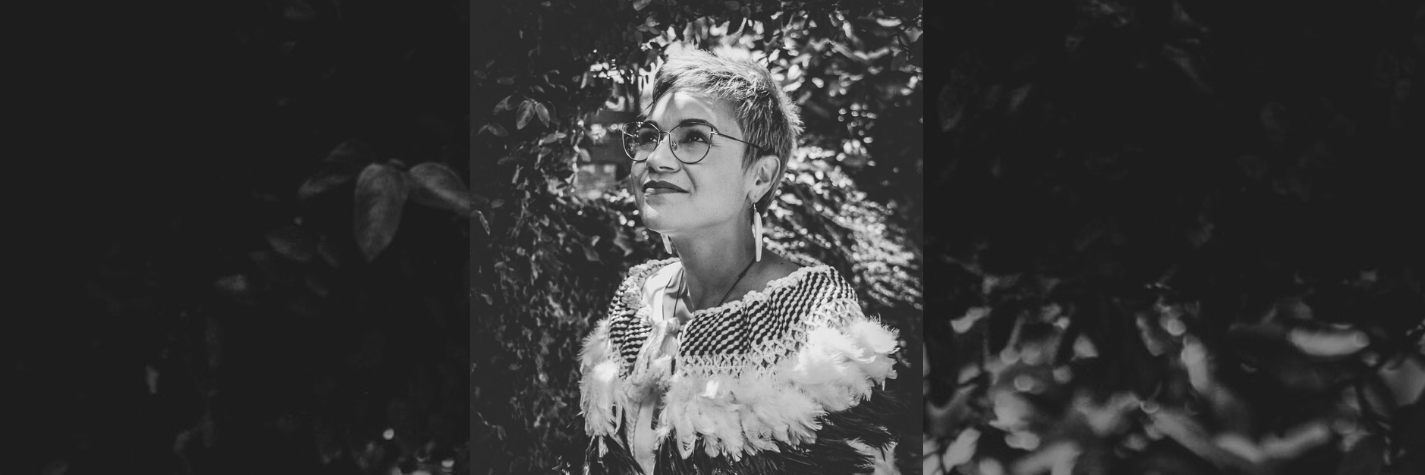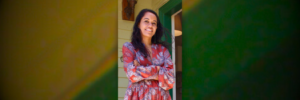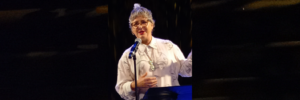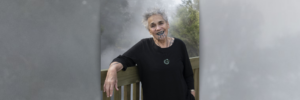
Dr. Emma Wehipeihana (Ngāti Tukorehe, Ngāti Porou) is an award-winning writer, broadcaster and political commentator. Her podcast on Māori health equity, Getting Better: A Year in the Life of a Māori Medical Student (RNZ/Bird of Paradise Productions) won the Voyager Best Narrative Podcast of the Year in 2021. In 2020 she won the Opinion Writer of the Year at the Voyager media awards, and her work has featured at newsroom.co.nz, stuff.co.nz, the Guardian, the NZ Herald and in academic and literary journals and books. lives in Auckland, where she works at Middlemore Hospital as a surgical registrar. The memoir There’s a Cure for This is her first book.
Congratulations on the release of your hotly anticipated pukapuka ‘There’s a Cure for This: A Memoir’. How would you best describe your book and who was it written for?
Kia ora e hoa mā. This memoir is about the end of the beginning; how on earth I ended up as a doctor, an author, a mother, from where I started. Hilary Mantel says that “Writing a memoir is a process of facing yourself, so you must do it when you are ready.” That’s my justification for what I’m about to say next – that I wrote this for me. But what I love about writing is the conversation it starts with readers, the bridge to whakawhanaungatanga. The best compliments I receive about the book from readers aren’t the ones where people talk about the style of writing, or the similes or whatever, but the way they found resonance in my story because of something it spoke to in their own.
Sometimes writers talk about their book as if it is something they’ve birthed – a struggle as well as a gift. If you were to think of your book this way, who are it’s whanaunga? Who helped you bring this book into the world?
Auē. Where do I start? My whānau and colleagues who trusted me to tell our stories, first. Every teacher, editor, friend, mentor who told me to write, that I could and should write. Specifically and practically, Renée, whose memoir course helped me organise my thoughts and appreciate the discipline required to write enough good words to assemble into a book. The Māori creatives, all the aunties in the background raging and giggling and nudging me along. Nadine Hura and Anahera Gildea in particular, but all of our kaituhi whānau whānui, we know who we are. Penguin Random House, Louisa Kasza and Jane Parkin my editors were the most supportive midwives you could imagine. It was a long gestation and a very long birth – if I could have arranged a caesarean and cut the bloody thing out in one piece, I would have!
Writing a memoir by nature is going to be revealing, not only for you but your whānau and potentially your colleagues and patients. What tikanga or kawa do you apply to your writing process to ensure you keep yourself and others safe?
We had a beautiful wānanga at Tukorehe, just before Covid-19 hit, where we linked up with other Māori writers and talked a lot about this. We published some of our kōrero in the journal Te Whē. That was really helpful in terms of understanding contemporary Māori writing and our processes, but it also connected us back to earlier conversations between the likes of Patricia Grace and Witi Ihimaera on this kaupapa. Ultimately, I kept coming back to reassuring myself of the subjective nature of ‘truth’ and that all I could do was write the truth as I see it, doing my best to get the objectives correct. I also gave Mum the power of veto over the manuscript, knowing that her instincts are better than mine when it comes to the integrity of our whānau stories, and she’s always cared more about not hurting others than I have. (She didn’t change anything, by the way).
Your pukapuka has been described as “darkly funny” and also “provocative”. Were those qualities intentionally brought to the fore in your writing, or did they evolve more organically?
Maybe that’s my personality (lol). I’ve been told that I write like I talk. I think that’s true because when I try to write outside of those parameters the writing isn’t very good. It makes academic writing very difficult, particularly because I’m not allowed to swear!
What do you think your mokopuna will think of your book? What will their reactions be?
I hope they would be grateful to have their whakapapa immortalised, and I would want them to be empowered to write their own stories.
Your book is being described as reflective and insightful, what is the most meaningful lesson you learned from writing this book?
I learned that writing a book is damn hard. That you’ll sweat and bleed and cry over it and then, if you’re lucky, your readers will tell you they sat down and read it in one go and you’ll be delighted and also pissed off because it took you years to get it out.
What was it like to hold your book in your hands for the first time?
Deeply nauseating. It was only because Mum was there, and crying with pride, that I could appreciate that maybe this was a good thing to do and not a terrible mistake.
If your memoir had an accompanying soundtrack, what would be on the playlist?
90’s rap and R&B, a bit of Bob Marley and the occasional jarring excursion into grunge.
What tips do you have for building relationships in the Māori writing community?
Give Anahera and Nadine your īmera. Show up. Support our rangatahi in whatever way they want, don’t blunt their aspirations with our limitations – they’re going to build a different world, and they can dream bigger than us.
What tips do you have for kaituhi Māori trying to balance work, study, whānau responsibilities and their writing?
Fuck, I’m the worst person to ask this. I have no work/life balance. All I know is that you have to write, do it whenever you can, find scraps of time and just get those words out.
What advice do you have for emerging Māori writers?
I’ll steal Charlotte Grimshaw’s line (again) here – “Telling your story is existentially important.”
Photo credit: Jenna Todd




